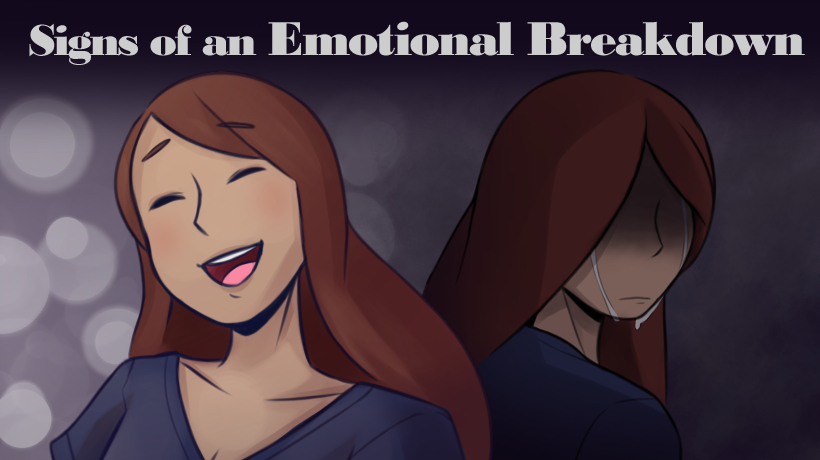We all experience some form of stress in our lives. Yet once in a while, the stress may feel so crushing that we worry we’re on the brink of a breakdown.
Medically speaking, a “nervous breakdown” isn’t an official term in clinical psychology. When we talk about a breakdown, we might be referring to a number of experiences. It could be an episode of mental illness manifesting as a panic or anxiety attack, an episode of post-traumatic stress disorder, or suicidal thoughts, according to the health resource website Everyday Health.
An emotional breakdown can also mean a specific moment where a person’s emotions feel so overwhelming that she has a complete meltdown. That could mean uncontrollable sobbing, despair, or detachment from the people and activities that once brought joy.
The medical website Healthline says there are several physical indicators, too. A person undergoing an emotional breakdown might experience anxiety high blood pressure, tense muscles, clammy hands, dizziness, upset stomach, or shaking.
If you or a loved one shows any of these warning signs, take note. These red flags may help you or someone you love find the help they need before their emotions feel like too much to handle.
Negative thoughts
Mentally healthy individuals may have feelings of sadness, self-doubt, stress, anxiety, and loneliness, but they’re able to filter out the negativity and balance their thoughts. A person on the verge of a meltdown feels trapped by the negative emotions, according to the health website Medical News Today.
Sleep problems
If you’re on the verge of an emotional breakdown, negative thoughts may keep you awake at night, says the website University Health News. And whether you had a good night’s sleep or were too restless to sleep for long, you may feel too unmotivated to get out of bed in the morning. In some of those cases, you might sleep too much, missing work or school by staying in bed all day.
Detachment from friends, family, and responsibilities
Healthline suggests the weight of an incoming emotional breakdown may dissuade a person from committing to responsibilities. If you’re feeling the pressure, you might not show up for work or neglect to care for people depending on you, like children or elderly parents. You might even stop maintaining your own personal hygiene.
You might also lose interest in the social connections you used to maintain. Perhaps you stop seeing your friends or you hide from other social engagements. You isolate yourself in your home because you can’t find the strength to perform for other people.
Changes in appetite
Medical News Today says a person on the verge of a breakdown might experience a rapid, unhealthy change in diet. The person might lose appetite and barely eat anything, or perhaps a person might only eat junk food. Alternatively, an emotionally unwell person might binge in the hope of feeling better through food.
Feeling drained
Spending so much energy on worrying, anxiety, and depression can leave a person feeling mentally and emotionally drained, says Medical News Today. During periods when a person isn’t worked up and feeling overwhelmed, he may feel so spent that he feels numb. Before an emotional breakdown, you might feel like you’ve lost interest in hobbies and people you used to love. You might also feel physically drained, and your friends might notice you’re speaking or moving more slowly than you usually do.
If someone you know is showing these warning signs, acting quickly is the best way to help that person. Offer support, patience, and any resources you can to someone who is struggling. Everyday Health suggests an intervention for professional help may be necessary.
If you feel like you’re on the verge of a breakdown, consider the resources you have to find help. Are there loved ones who could offer you help? Are there professional resources that can help you get back on track? Identifying your problems and the steps to help you manage them can help.
Sources:
https://www.everydayhealth.com/emotional-health/recognizing-emotional-breakdown/
https://www.healthline.com/health/mental-health/nervous-breakdown#risk-factors
https://universityhealthnews.com/daily/stress-anxiety/mental-breakdown-symptoms-are-you-on-the-edge/
https://www.medicalnewstoday.com/articles/321018.php



